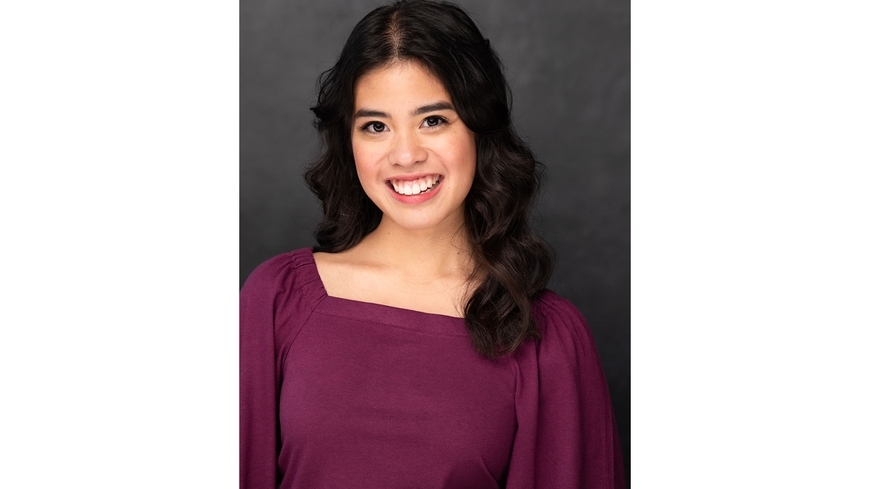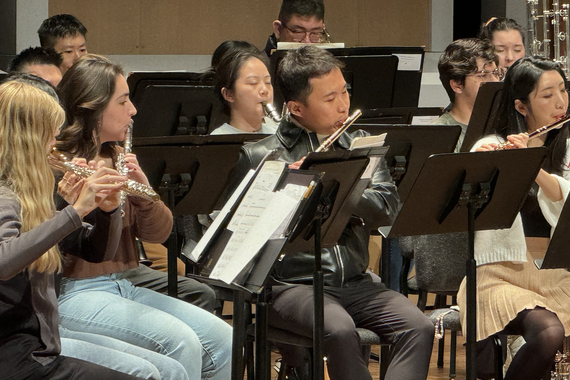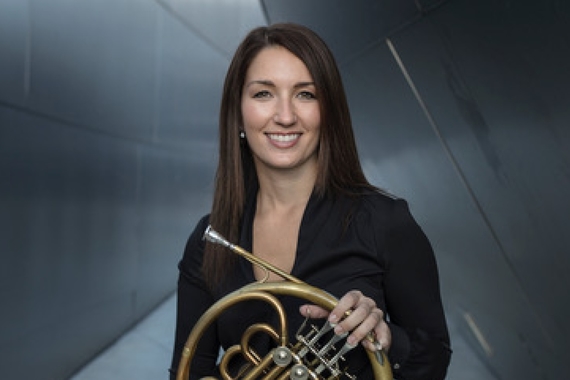Spotlight on Success: Award-Winning Playwright and Alumna Isabella Dawis
Alumna Isabella Dawis (BM, piano performance, 2013) is quickly establishing a successful and notable career as a playwright, librettist, lyricist, actor, teacher, and performer. She is the 2022 recipient of the prestigious $100,000 Kleban Prize for libretto writing, and the co-recipient of the $60,000 2021 Fred Ebb Award. In addition, Dawis holds teaching studios in both New York City and the Twin Cities. We caught up with Dawis to discuss her career and how her School of Music degree helped pave the way for the success she is experiencing now.
Dawis credits her training as a pianist with Professor Alexander Braginsky as being instrumental to her ability to work as a professional musician straight out of university. “Especially when I moved to NYC, it was crucial to stay in touch with the performing arts at all times, even at my "side gigs.” When you’re playing piano for dancers and singers, you have to realize that music doesn't just float in a vacuum. It's the impetus to get up and move, or a new way to understand how your mind and body interact, or an emotional connection between strangers. To be a musician is to be a facilitator. And the ways that I now facilitate creativity, as a musical theater writer, are entirely informed by my studies as a pianist.”
One of the most important lessons that Dawis took away from Braginsky was feeling the full scope of a pianist’s physicality. She had felt an emotional and intellectual connection to music before, but she explained that Braginsky “taught me what expressive, healthy piano playing feels like.” Dawis says she will carry that internal compass with her for the rest of her life. Other influential instructors during her time at the School of Music included David Damschroder and Michael Cherlin.
During her time at the School of Music, Dawis was able to study alongside her sister, who was a violinist in the studio of Professor Sally O’Reilly. The pair had an opportunity to perform a joint recital together. She joked that she spent a lot of time in the music library, both studying and napping to make up for a marathon practice session.
A typical work day looks different for her depending on the day. Usually, Dawis teaches piano, singing, and storytelling with her studios in the Twin Cities and New York City. She may have a telephone conversation with her collaborators on projects she’s working on, and work on submitting applications for residencies and fellowships. She spends time reading, and does her writing on the computer. To Dawis, “Writing doesn't look like 'work.' It's like stumbling around a large, wild forest. It might seem like you're wasting time, but you're actually forging a path.”
Dawis often travels to New York City to work on her musicals, most recently for a concert of Half the Sky at Joe’s Pub in the Public Theater. "A typical workday as a musical theater writer is not glamorous, but an atypical workday feels like you’ve been shot out of a cannon. ... That morning I went to the venue for a frantic soundcheck—listening for balance, sometimes playing piano myself, double-checking the musical arrangements with the composer. Then I ran over to the American Opera Project, where I’m a Composers and the Voice librettist fellow, to listen to new pieces of mine performed by opera singers. I then headed back to the theater as the audience began arriving, to greet colleagues, industry folks, and producers. (That’s a big part of being a writer, too.)"
The performance of her work that particular evening was a unique experience for Dawis. “Finally I experienced the overwhelming adrenaline rush of hearing my work—taking in not only how magically the performers delivered the material, but also when and how the audience leaned in and laughed. (I’ll need that information for future rewrites.) The concert got a wonderful reaction, and when it was over, I stayed talking with fellow artists until the building closed. I was so wired, I didn’t go to bed until past 3 AM that night.”
Dawis shared some advice with us for current School of Music students. “Take advantage of the fact that you’re in the College of Liberal Arts, and enroll in a diverse range of classes. Make sure that you keep your other interests alive besides music—they will feed and influence your artistry in ways you don’t yet anticipate. Also, your relationship with your private teacher is the foundation of your entire experience at the School of Music, particularly as an undergrad.”
Isabella Dawis is the recipient of the 2022 Kleban Prize for Musical Theatre, and currently holds a Composers and the Voice Fellowship with the American Opera Project. She is the co-recipient of the 2021 Fred Ebb Award and the 2020 Weston-Ghostlight New Musical Award with her collaborator composer Tidtaya Sinutoke.
She has two musicals in development with Sinutoke.
Half the Sky tells the story of an Asian American woman climbing Mount Everest—a contemporary American musical on a global scale, infused with the sounds of traditional Thai and Himalayan folk music. Follow @halftheskymusical on Instagram.
Sunwatcher is an experimental chamber musical inspired by classical Noh theatre—the true story of Japanese female astronomer Hisako Koyama, intertwined with the Japanese myth of sun goddess Amaterasu.
Currently, she is collaborating on a theatre piece created by Filipinx theater writers for Filipinx theatre students at New York University, to premiere May 2022.



